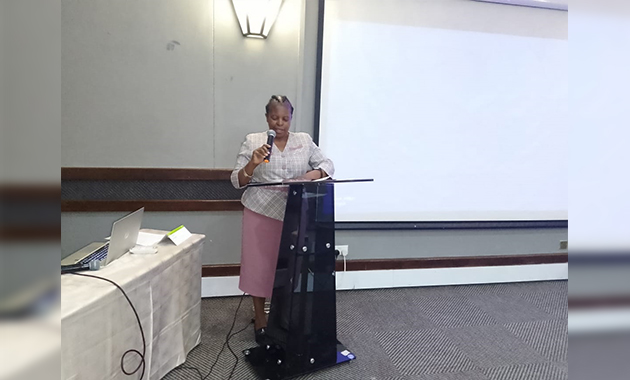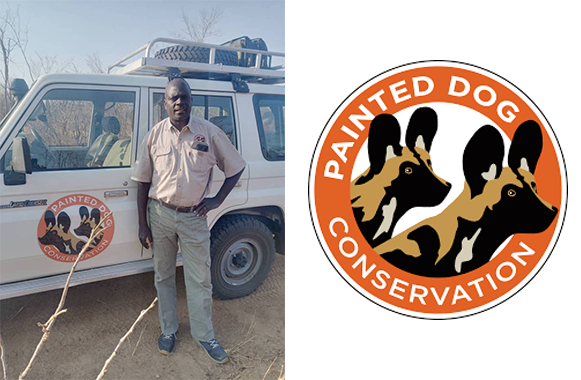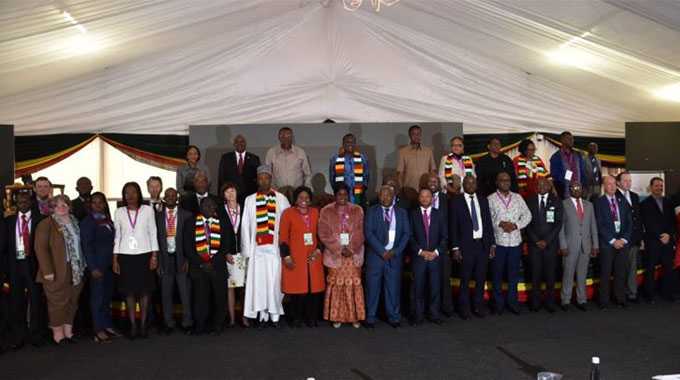Disability: Media has role to play

And, analysts say the media is the number one culprit in perpetuating stereotypes, which create social barriers that prevent disabled people from functioning fully in society.
Farai Mukuta, the director of the National Association of Societies for the Care of the Handicapped says the media has a big role to play in educating the community to break down stigma and social restrictions.
“Journalists as professional communicators are in a unique position to shape the public image of persons with disabilities. The words and images they use can create balanced views or insensitive portrayal that reinforce common myths and promote discrimination”, he told journalists at a workshop recently.
“We hope the workshop will promote recognition and respect for the human rights of disabled persons and make their contributions and concerns more visible in the media and society”.
The media workshop was organised by NASCOH to sensitise Zimbabwean journalists on disability and discuss the various factors that result in disability exclusion.
The event brought together journalists from the print and electronic media, disability activists and other experts and it provided an opportunity to share professional experiences, promote co-operation and support balanced reporting on people with disabilities.
The intense two-day event provided a combination of theory and practice. Participating journalists gained insights into the concerns of people with disabilities, received statistical data, information on NASCOH programmes for people with disabilities as well as disability-friendly terminology through a series of informative lecture discussions.
Disabled people are one of the most marginalised, socially excluded and poorest groups in Zimbabwe.
It is estimated that there are approximately 1,4 million disabled people in Zimbabwe although there are no reliable statistics to verify this.
Fambaineni Magweva, the NASCOH disability technical adviser defined disability and outlined the causes, basic concepts and the impact on society and the individual.
His presentation centred on the basic principles and values that helped journalists to get an appreciation of what disability entails.
Zimbabwe, he said, was losing 25 percent of its Gross Domestic Product through the exclusion of disabled people. He estimated the loss to be around US$200 million per year.
“Definitions of disability are still in use that evoke negative connotations and that contradict integrative concepts by over-emphasising the limiting effects of impairment”, he says.
“A new view on the matter is needed now. Zimbabwean society needs to recognise disabled individuals as citizens endowed with rights and abilities. The media must play an active role to change negative perceptions.
“When accurate, balanced and fair reporting is done on disability issues, the disabled can be empowered to take charge of their destiny as adults who want to take part in the mainstream of social and economic life.”
He told journalists that efforts must continue to instill among communities a sense of solidarity that does not use flawed concepts of disability as grounds for the careless exclusion of fellow citizens.
“Between excessive care and neglect, there should be a sober conception of disability, which neither mystifies nor underestimates its consequences. Disability can, but need not always provide the grounds for specific measures. It should in no case provide a justification for discrimination and social exclusion,” Mugweva says.
Visually impaired Nyamayabo Mashavakure who is also a member of NASCOH shared his thoughts and insight on disability and the attainment of Millennium Development Goals.
“The media has been silent over the sidelining of disability issues in the MDGs. The fact that disability is not mentioned in any of the eight MDGs, the 18 targets set out to achieve these goals, or the 48 indicators for monitoring their progress is worrying”, he said.
“We get very concerned when journalists forget about our issues. We are Zimbabweans and our issues must also feature prominently in the media. Journalists should locate disability issues within the discourse of the MDGs.
“It is critical to foreground the meaning of disability and underscore the reasons for the disabled people’s absence from the agenda of the MDGs. Without addressing our concerns MDGs will never be attained in 2015”.
Langton Mugova, a journalist with disabilities, says it is important for the media to use disability-friendly terminology that does not promote out-dated, insulting or patronising views of disability and people with disabilities.
“It is disturbing that some media reports inadvertently show attitudes that are paternalistic or condescending. Misguided language and many prevailing attitudes promote outdated beliefs that people with disabilities are sick, disadvantaged, needy, and, in general, not like us “, he lamented.
“The language we use to interact with others matters because it reflects our inner ways of thinking about one another. Journalists must re-examine the language they use and the perspectives they have about persons with disabilities”.
The media, he said, has a critical role to play in promoting attitudes that are more inclusive, accessible and welcoming.
His presentation generated ardent debate with journalists arguing that the media used blunt and inappropriate language to sell papers or because of space limitations.
Entrenched media position on language use are evident but Mugova argues that the media needs to take practical steps to limit the use of language that portrayed the disabled as people of less value, less ability, restricted, deprived and deviant.
“It is important for the media to learn from observations made by disabled persons on language use to help Zimbabweans interact sensitively and respectfully with one another”, he said. “The media should report factually and refrain from treating the disabled as helpless and childlike persons. Identifying and sensitising reporters and editors (gatekeepers) to help in covering disability issues in a fair, balanced and accurate manner is critical!”
Journalists, said Mugova, must be guided in their work by the UN Convention on the Rights of Persons with Disabilities which is clear about disability rights to live free from degrading treatment, to respect on an equal basis to others, and to live free from exploitation, violence and abuse.
“Journalists must desist from using language that encourages the idea that disabled people are “less than fully human”, he said.
Kudzai Shava, who is blind, and a NASCOH activist, gave a detailed presentation that provided useful insights and valuable information on enhancing disability coverage in Zimbabwe.
His presentation deliberated on wide-ranging issues that primarily focused on ways to increase media coverage of disability issues, the constraints and opportunities.
“The media must change and desist from focusing on sensational, cloying and misinformed disability reporting that undermines public policy and legal advances of the disability movement”, he said.
“We need coverage that raises public awareness and helps to end disability discrimination. Media images and stories influence thinking and establish social norms”.
“We have endured misrepresentation, defamation, and lack of representation in the media news and entertainment. Many Zimbabweans still do not understand disability issues as rights issues because fear and stereotypes about disability are deeply ingrained in the Zimbabwean culture and reflected in media coverage”, Shava maintained.
“People with disabilities are seldom seen as individuals beyond the framework of their disabilities. The media has a big role to play in the struggle to end demeaning, isolating, and institutionalising people with disabilities”.
The media, he argued, must not perpetuate stereotypes and misinformation on disability issues but be a potent force in countering stigma and misinformation and a powerful ally in changing perceptions, eliminating discrimination, and raising public awareness.
More than 10 percent of the world’s population have a physical or mental disability according to UN statistics. These persons often contribute to their own socio-economic development and that of their family but this contribution is often neither recognised nor valued.
The workshop was part of a campaign by NASCOH to promote media initiatives and information that seek to be inclusive of persons with disabilities. NASCOH implements a range of activities in its field of competence to support broader social participation by disabled people.
Journalists were encouraged to give an in-depth and thoughtful attention to disability issues to counter stigma and misinformation and change perceptions, eliminating discrimination, and raising public awareness.
NASCOH pledged to continuously train journalists on disability issues in order to inform disability coverage in news reports with the goal to advance accurate reporting of disability issues and promote positive images of people with disabilities.
Some of the recommendations which were proposed included:
l Closer collaboration between NASCOH and journalists critical in enhancing coverage of disability issues.
l Media tours to NASCOH member institutions vital to boost coverage of disability issues.
lJournalists must go an extra mile, out of passion, to cover
l disability issues.
l Networking essential to keep up with new trends and activities on disability events.
l NASCOH to organise editors’ workshop to sensitise the gatekeepers on disability issues.
l NASCOH must build closer ties with the Zimbabwe Union of Journalists (ZUJ) as part of promoting media relations.
l NASCOH must circulate its e-newsletter, reports and press releases through the Zimbabwe Union of Journalists and Media Institute of Southern Africa to enhance coverage of disability issues.
lJournalists must strive to mainstream disability issues in all news stories.
l NASCOH must facilitate media exchange programmes with other countries in the region.
lNASCOH must organise regional conference for journalists reporting on disability issues or arrange video conferencing to share experiences and best practices.
l NASCOH must avail glossary of disability friendly terms to journalists to help them promote disability friendly language.









Comments